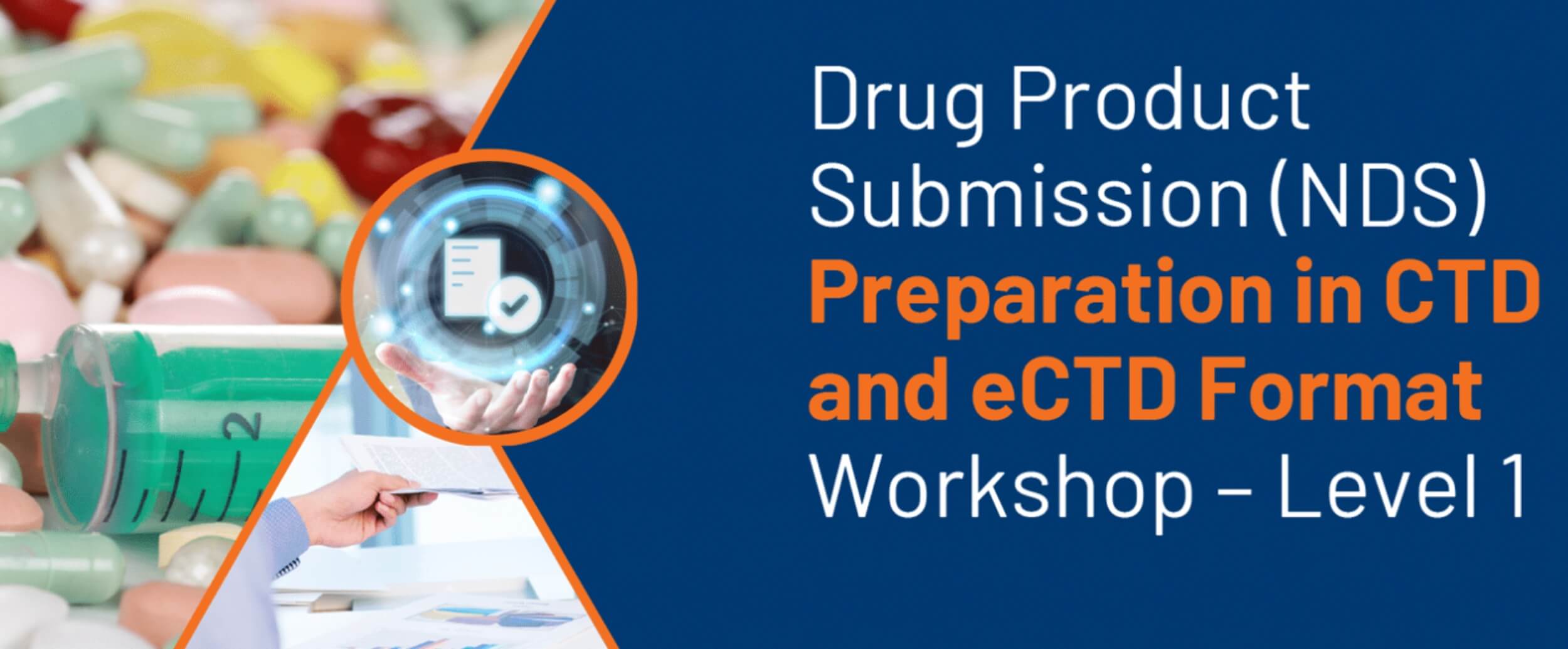Regulatory submissions are a cornerstone of the pharmaceutical industry, and mastering this process is essential for regulatory affairs professionals. On November 8, 2024, AAPS hosted an insightful webinar on Drug Product Submission (NDS) Preparation in eCTD format.
The webinar aims to equip participants with practical knowledge and skills for successful submissions. Here are the four key takeaways from this dynamic event.
1. Understanding the Importance of the Common Technical Document (CTD)
One of the standout segments of the webinar focused on the Common Technical Document (CTD), a globally standardized format for regulatory submissions. Participants learned how the CTD facilitates organization and consistency across applications with its five key modules:
- Administrative Information and Prescribing Information
- Quality Overall Summary, Clinical and Non-Clinical Overview and Summaries
- Quality Information
- Non-Clinical Study Reports
- Clinical Study Reports
The session also highlighted the mandatory requirements and advantages of transitioning to eCTD, the digital version of the CTD. These advantages include improved efficiency, faster submission processing, and enhanced communication with regulatory agencies.

The regulatory affairs training webinar focused on the Common Technical Document.
2. Mastering the Drug Development and NDS Process
Navigating the complexities of the New Drug Submission (NDS) process is no small feat. The webinar provided an in-depth overview of the critical stages involved in dossier preparation. Attendees explored key elements, such as:
- Notice Types: Understanding the specific requirements for drug submission notices.
- Priority Review Policy: How to leverage priority reviews.
- Pre-Submission Meetings: Insights into effective engagement with regulatory authorities to address potential issues proactively.
3. Learning Submission Formatting and Screening Best Practices
Formatting errors can derail a submission, making attention to detail crucial. The workshop delved into the submission formatting, filing, and screening processes, emphasizing strategies to avoid common pitfalls. Key points included:
- Structuring the NDS to meet Health Canada’s specific requirements.
- Ensuring the submission is complete and error-free to pass the initial screening.
- Highlighting how the eCTD streamlines the screening process and enhances collaboration between stakeholders.
This segment provided actionable tips that attendees could implement immediately in their work.

The regulatory affairs workshop covered submission formatting, filing, and screening processes.
4. Advantages of the eCTD Format
A significant focus of the webinar was the advantages of using eCTD for regulatory submissions. Unlike traditional paper-based submissions, the eCTD offers:
- Enhanced Organization: Easy navigation through linked documents and sections.
- Improved Communication: Facilitates real-time updates and feedback with regulatory authorities.
- Streamlined Workflows: Reduces administrative burdens and ensures faster approval processes.
Participants clearly understood how adopting the eCTD can improve submission efficiency and compliance, making it an indispensable tool for modern regulatory affairs professionals.

Our webinar provides real-world regulatory affairs applications.
Why Attend AAPS Workshops?
At AAPS, we pride ourselves on delivering practical, industry-relevant training. Whether you’re new to regulatory affairs or looking to enhance your skills, our workshops are tailored to provide real-world applications.
Our Quality Assurance and Regulatory Affairs diploma program goes beyond webinars, offering comprehensive training in pharma, food, and cosmetics regulatory standards.
Are You Ready to Excel in Regulatory Affairs?
If you missed the webinar, no worries! You can still purchase the recorded session on how to prepare a New Drug Submission (NDS) in eCTD format. AAPS offers a range of regulatory affairs training opportunities to help you stay ahead in your career. Stay tuned for our upcoming sessions and workshops by visiting our events page.
Discover how AAPS can support your regulatory affairs journey and equip you to meet the challenges of modern drug submissions with confidence and expertise.
Are you ready to enter the dynamic pharmaceutical industry?
Contact AAPS for more information.




